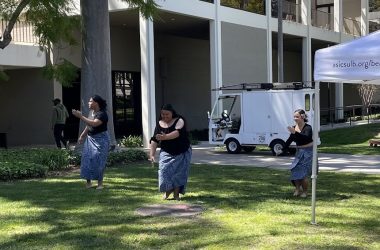Quick fix and “magical” dietary supplement manufacturers have claimed to contribute to a healthy lifestyle, but two Cal State Long Beach marketing department faculty members are researching whether consumers use the supplements in healthy ways.
The Association of Consumer Research has awarded a $1,500 grant to Ingrid Martin and Sayantani Mukherjee to research the quick-fix behavior associated with dietary supplements.
“People have a magical belief about dietary supplements,” said Mukherjee when asked about misconceptions of supplements. “They see supplements as a lucky charm.”
Martin and Mukherjee’s project focuses on dietary supplement consumer demographics and the nature of use of the product by these consumers.
“A lot of our students take supplements,” said Mukherjee. “People don’t think it can harm them.”
The U.S. Food and Drug Administration’s website warns dietary supplement manufacturers do not always register their products before producing or selling them. Products may sound healthy, but that is not always the case.
“I think people have gotten out of hand,” said Sarah Epstein, a psychology major, when asked about dietary supplements. “I understand people want to be healthy, but to actually use a pill or even a laxative just to be skinny is absolutely ridiculous and a bit sad.”
Prior to receiving the grant, Martin and Mukherjee conducted preliminary research, forming focus groups and interviewing undergraduate CSULB students. From their interviews, they concluded two main motives drive people to consume dietary supplements: those taking supplements in addition to eating healthy and exercising, and those using supplements compensate for lack of physical activity or unhealthy eating habits.
“I think dietary supplements are popular because they are seen as a quick and easy way to take care of a problem,” said Kinesiology major Dennice Flores, “I don’t think they help. It’s just a way for companies to make money.”
In their next phase of research, the two faculty members hope to better understand what prompts people to substitute dietary supplements for healthy lifestyles.
The grant award will be spent towards buying software, paying survey takers, photo copying, etc. The data that is collected from this research will eventually serve as a proposal to apply for other grants. The research project is currently only studying CSULB students, but Dr. Mukherjee hopes to eventually look into older age groups as well.
“We hope we can come out with corrective remedies to correct these maladaptive ideas,” Mukherjee said.



